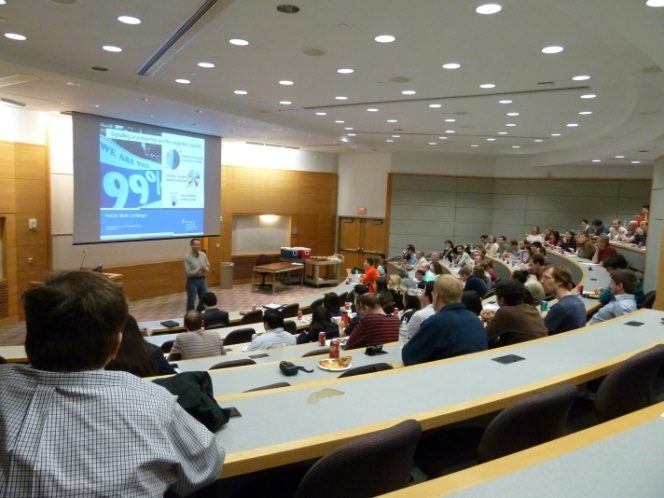Lecture on “G PROTEIN-COUPLED RECEPTORS: FROM CLONING TO FUNCTIONAL READ-OUT” at Vanderbilt University
Syllabus – CPBP 330 – Special Topics in Protein Biochemistry
Dr. Dr. Ines Liebscher
Leipzig University, Medical Faculty, Institute of Biochemistry
Date
02 – 06 October 2017
Venue
Departments of Chemistry, Pharmacology, and Biomedical Informatics, Center for Structural Biology, and Institute of Chemical Biology, 465 21st Ave South, BIOSCI/MRBIII, Room 5131, Nashville, TN 37232-8725
This course will focus on both the theoretical background and practical considerations in modern molecular cloning techniques and the functional read-out of G protein-coupled receptors (GPCR). Upon completion of this course students will be able to successfully apply and optimize cloning techniques in their projects and specifically to plan and evaluate experimental setups to analysis GPCR signal transduction in vitro and in vivo.
Scientific projects often require the cloning and modification of a gene of interest. For example mutations can help to identify key residues, epitope tags can monitor the location of the protein, and fluorescence and luminescence can be used to study functional interactions between proteins. Problems in cloning can arise at any step of the process but they are particularly abundant when dealing with large, multi-exon encoded genes as PCR setup needs adjustment, transformation is less efficient and membrane expression is hampered. In this course students will be introduced to techniques, tricks and troubleshooting of receptor cloning from scratch to a fully functional protein of any size and the in vitro and in vivo implications of receptor modification based on experiences with exceptionally big GPCRs.
The course will answer the following questions: 1) Where is my gene and how do I get it amplified? (tissue preparation, RNA, cDNA, PCR); 2) How do I store my protein? (vectors, restriction enzymes, ligation, heterologous recombination, GIBSON assembly); 3) What are my options for receptor modification? (tags, site directed mutagenesis, overlap PCR); 4) How do I know that I have the protein I want where I want it? (colony PCR, sequencing, ELISA); 5) What does my receptor do? (second messenger readouts, FRET, BRET, live cell imaging approaches); 6) How does this translate in vivo? (animal models in signal transduction studies). Examples of applications will be taken from the most recent literature and will represent a major part of the course.
Date and Time
The class will meet on 5 days in the week of October 2nd always 10:00-12:00 a.m. Dates will be finalized with class participants. This is a one credit course.
The research stay of Dr. Dr. Ines Liebscher is funded by the Max-Kade Foundation.

